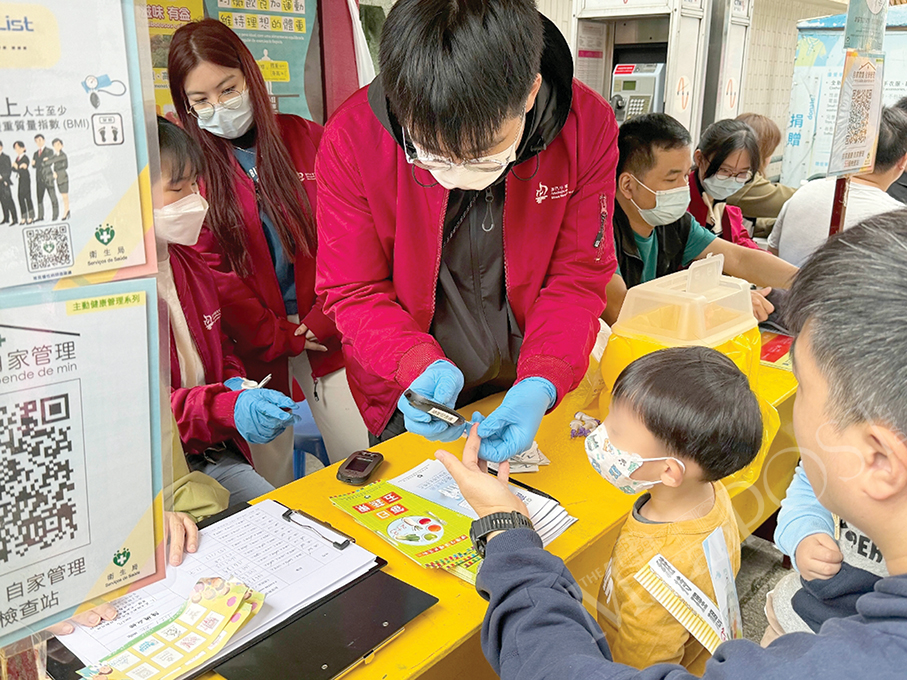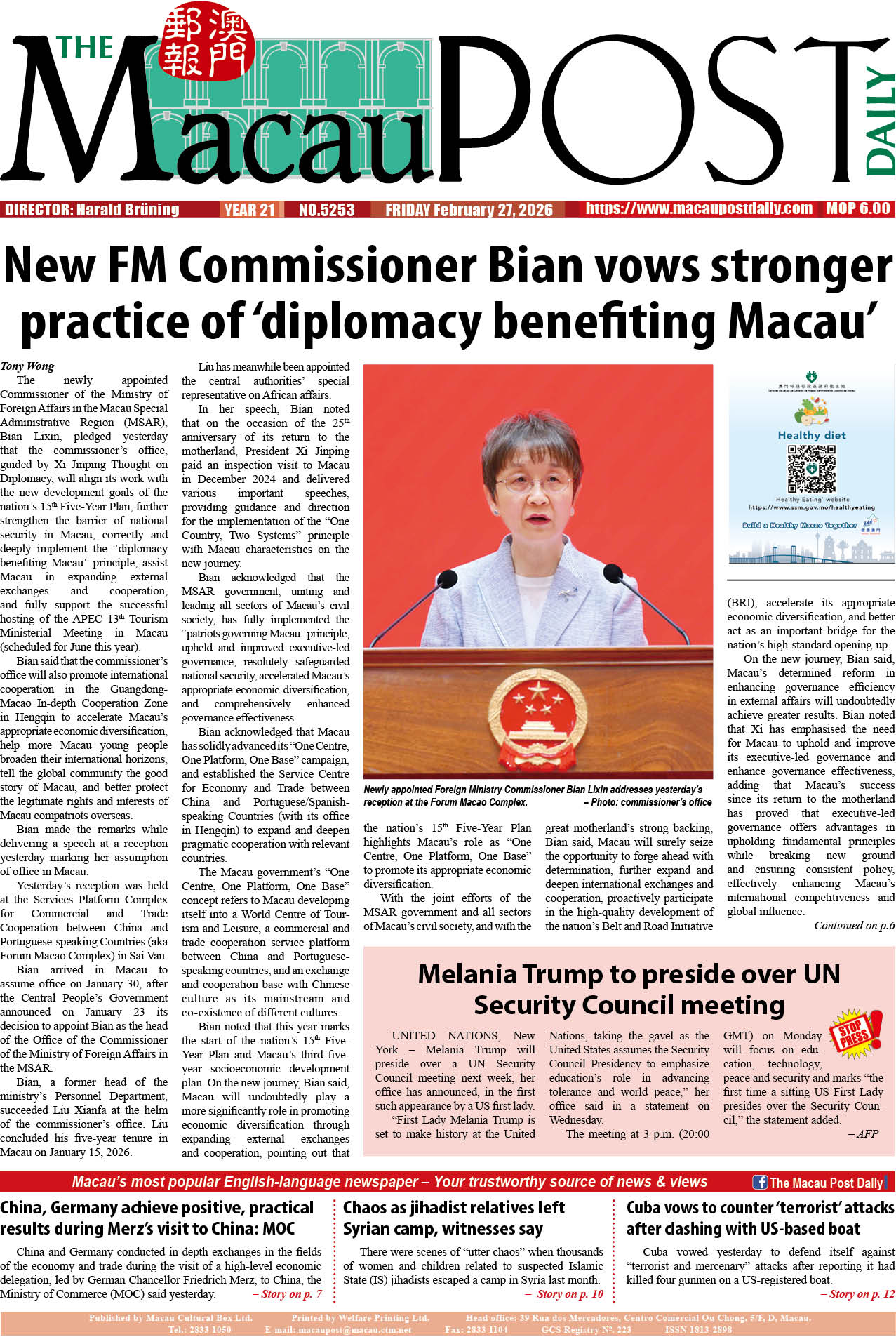The “Macau Health Survey 2016” shows that nearly 20 percent of local senior citizens aged 65 and above live with diabetes, whilst the International Diabetes Federation (IDF) estimates that the number of people living with diabetes worldwide will rise from 537 million now to 783 million in 2045, in response to which the Health Bureau (SSM) is urging locals who have reached the age of 40 to start undergoing blood-sugar tests every three years.
According to previous statements by the bureau, Macau’s diabetes mortality rate in 2021, based on the latest available official statistics, stood at 9.2 per 100,000 population, while the awareness rate of diabetes mellitus and the treatment rate accounted for 68 percent and 93.9 percent respectively, and the glycaemic* control rate stood at 57.7 percent.
Yesterday was the Word Diabetes Day, marked annually on November 14. Two doctors and a nurse – public Conde de São Januário Hospital Centre physician Tam Kuok Wa, Ilha Verde Health Centre Director Lok Mei Kun, and Fai Chi Kei Health Centre nurse Wong Si Iam – raised awareness of diabetes in the community through separate interviews with local reporters on Wednesday.
Dr Tam pointed out that people with a family history of diabetes, high blood pressure and high cholesterol levels, as well as those aged 65 or above are all at high risk of developing diabetes, adding that excessive obesity or being overweight, a sedentary lifestyle and physical inactivity, a diet high in sugar, fat and calories, and a lack of vegetables and fruit in one’s diet also increase the risk of diabetes mellitus.
“Diabetes is a common and manageable chronic disease, and early diagnosis and effective management can reduce the risk of complications,” said Dr Tam, who listed the common symptoms of diabetes as being very thirsty and urinating frequently, at night in particular; a feeling of extreme and insatiable hunger; weight loss; fatigue and weakness; blurry vision; slow wound healing; frequent skin infections; tingling in hands and feet; and vaginal infections.
With the ageing of the population, diabetes, like other chronic diseases, will gradually increase in incidence and the burden of chronic diseases will continue to increase, Dr Lok said, quoting the bureau’s advice urging adults to check their blood glucose regularly for early detection and treatment.
According to Dr Lok, the bureau has launched its “I Cook My Own Healthy Diet (健康飲食我自煮)” cooking-video sharing campaign, which runs from the beginning of this month to the end of the year, to encourage residents to cook simple and nutritious dishes at home, with the aim of raising awareness of diabetes mellitus** and promote healthy eating among the population.
Local residents aged 16 or above can film the process in a 30- to 120-second video of them cooking one of the 20 healthy dishes selected by the bureau, and send it together with the required information to the bureau’s “Vitality Health Station (活力健康站)” Facebook page.
Those who have the most likes on the first 10 cooking videos will be rewarded with a cooking appliance or supermarket gift vouchers.
Wong pointed out the three major principles in controlling diabetes mellitus, namely dietary control, regular physical activity and medication, i.e., in terms of dietary control, to eat regularly on time with a balanced intake of six major food groups (whole grains; oils, fats, nuts and seeds; legumes, fish, eggs, meat and its products; dairy products; vegetables; and fruit).
Regular physical activity refers to the practice of 30 to 50 minutes of moderate-intensity exercise, three to five times a week, to maintain a proper body weight, according to Wong, who underlined that patients should take medication or insulin injections regularly according to the doctor’s prescription.
She also said that people with chronic diseases such as diabetes have to develop a concept of self-management and learn to self-monitor blood glucose, urging the patients to keep a blood glucose meter at home so that they can measure their blood glucose at any time and make timely adjustments to their diet and exercise.
* “Glycaemic” refers to the average concentration of glucose in the blood over time.
** “Mellitus” is Latin for “honey-sweet,” describing the sweet-smelling urine of affected individuals.

This undated handout photo released by the Health Bureau (SSM) on Wednesday shows a local resident undergoing a blood glucose test.








